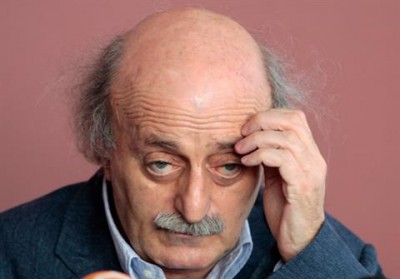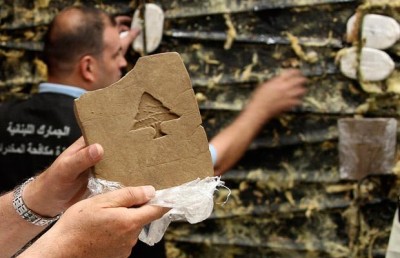 Beirut, Lebanon – Lebanon’s outspoken Druze leader Walid Jumblatt is the highest ranking Lebanese official to publicly support the call to legalise marijuana in Lebanon.
Beirut, Lebanon – Lebanon’s outspoken Druze leader Walid Jumblatt is the highest ranking Lebanese official to publicly support the call to legalise marijuana in Lebanon.
In a “joint statement” made on Twitter over the weekend, Jumblatt said that growing of marijuana – which is prevalent throughout much of Lebanon’s Bekaa Valley – should be liberalised and that the state should stop cracking down on marijuana farmers.
“Never in my life have I smoked marijuana, but I support growing cannabis for medical use and to improve the living conditions of farmers in north Lebanon and the Bekaa Valley,” Jumblatt told Al-Jadeed television.
“Let’s legalize cannabis and regulate its cultivation.”
In the Bekaa Valley, there are over 40,000 warrants for arrest outstanding against thousands of farmers and traffickers.
“It’s time to allow hash to be grown and to overturn arrest warrants against people sought for doing so,” the veteran politician, often dubbed a “king maker” in Lebanese politics, wrote in Arabic on his Twitter account.
History of Hashish in Lebanon

Lebanon is famous for producing high-quality hashish, which is exported throughout the world. Since the 1990s, the state has actively attempted to eradicate the industry, with varying degrees of success. This year, distracted border police are focusing on the conflict in Syria, leaving Lebanese growers unhindered.
Cultivation of cannabis and traditional hashish-making has occurred for centuries in Lebanon’s Bekaa Valley. In Ottoman times, the pashas that ruled over the valley encouraged the industry. Hashish was ubiquitous, and was even used as a form of currency.
In 1926, a new national constitution was drawn up and the production of hashish was outlawed. An illicit industry soon developed, and by the 1950s, business was booming.
The civil war (1975-1990) allowed the now-illicit Lebanese hashish trade to flourish, as farmers worked with various militias to produce highly-efficient, large-scale operations that enabled the production, transportation and sale of vast quantities. Hashish cultivation became widely prevalent during the country’s civil war that broke out in 1975. As the state disintegrated, marijuana farmers rose up, managing to create a thriving multi-billion-dollar business. Inevitably, the proceeds of trade were used in part to fund the operations of these militias.
However, following the end of the war in the early 1990s the international community put pressure on Lebanese authorities to root out the practice.
In 2001, Hezbollah warned the Lebanese authorities to forgo planned eradication programs in the valley—ostensibly in a bid to protect farmers’ livelihoods—and the cannabis trade began to slowly pick up speed once more.
Jumblatt Breaks Ranks in Supporting the Legalization of Weed
Jumblatt first caused a stir back in May when he unequivocally came out in favour of legalisation and stressed that such a move would help struggling farmers.
In a country deeply split between the Hezbollah-allied March 8 camp – that supports Syrian President Bashar al-Asad – and the anti-Asad March 14 camp – that opposes Hezbollah and Asad -, Jumblatt, sometimes described as a “chameleon”, has been able to make or break governments by shifting alliances.
The Bekaa is itself a primarily Shi’ite area, and many of the Hezbollah troops fighting in Syria are natives of the valley. Hezbollah is primarily funded by the Syrian regime, and as the latter’s power and wealth has been eroded by the civil war, the importance of drug capital has increased accordingly. The current annual income of the Hezbollah drug distribution network is estimated at €4.4 billion.
Lebanon is still a major supplier of hashish to Europe, Africa and the Gulf States, although its annual production is generally far lower than that of the 1980s. Despite various UN and government schemes to help farmers make the switch, the authority of the state remains weak in large parts of Lebanon and many farmers have refused to return to growing less lucrative crops.
According to cannabis growers interviewed by AFP, demand for marijuana has grown in recent years with a noticeable spike being seen since 2012, with most of Lebanon’s hashish now destined to war-torn Syria.
Middle East Eye

Leave a Reply
You must be logged in to post a comment.